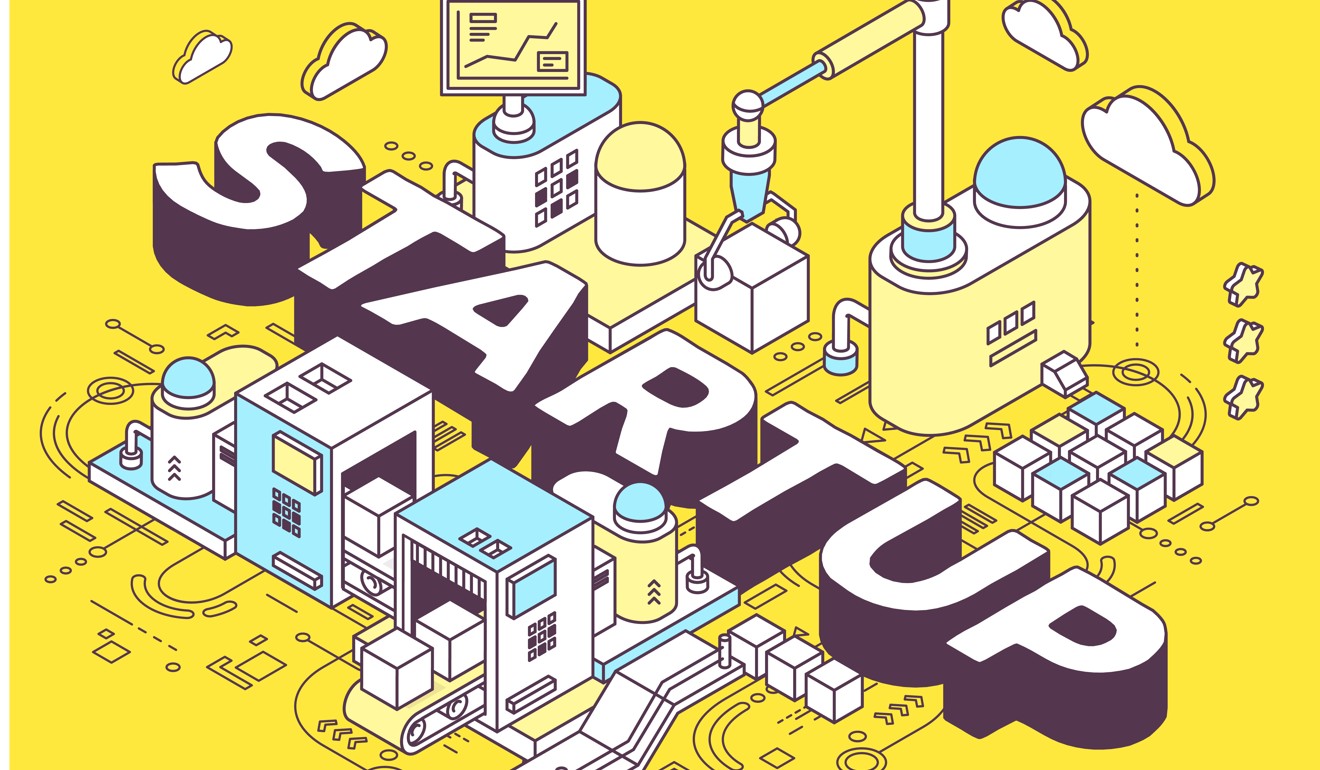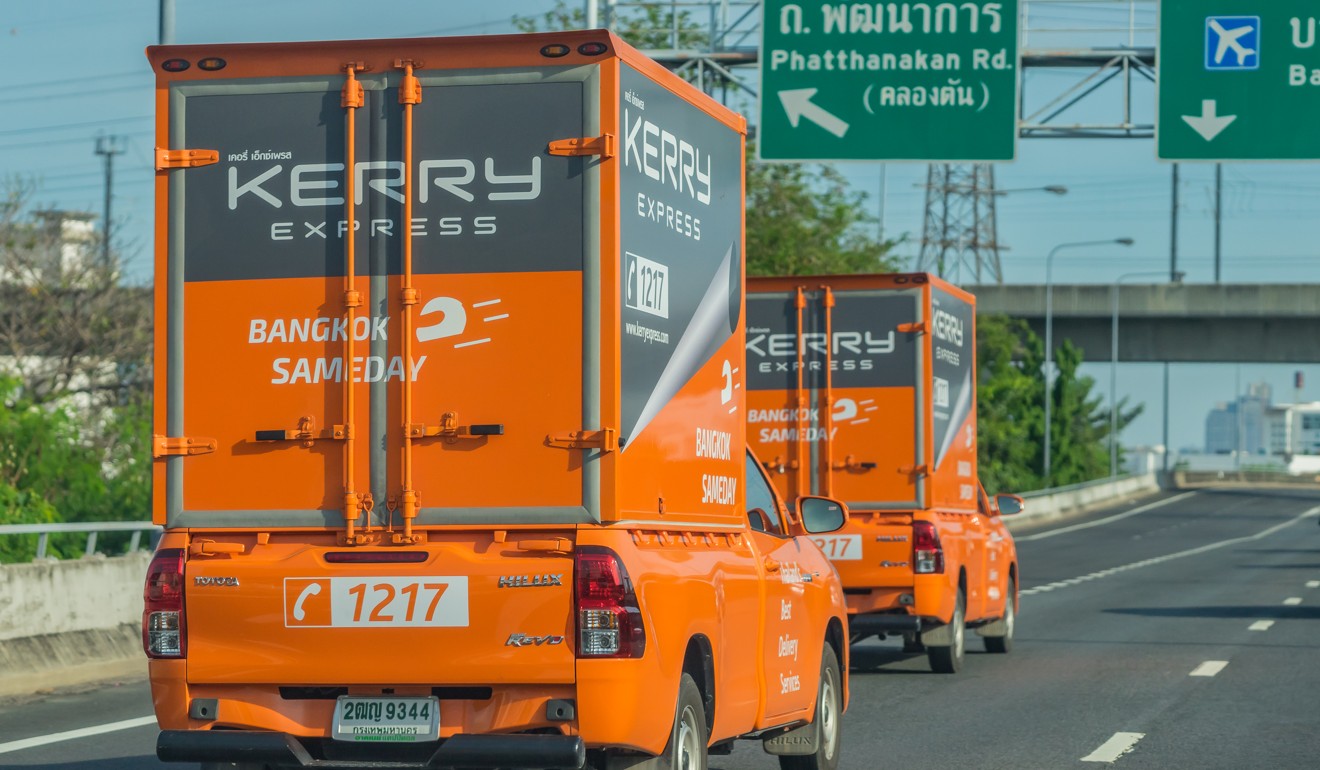
Why corporations see a bright future in start-ups – and want to think and act fast like them
- Hong Kong aims to fund innovation development in the city, with much of it going to start-up community now helping to transform the global economy
- Banks and other big businesses can support small firms focused on research and development, which lack expertise and resources for sales and marketing
Earlier this year, Hong Kong’s Financial Secretary Paul Chan Mo-po, in his budget speech for the financial year 2018-19, pledged HK$50 billion (US$6.4 billion) to boost the city’s long-term technology and innovation development – a fourfold jump from the year before.
Much of the budget will be used to support the start-up community, which plays an important part in transforming the global economy for the future.
And Hong Kong is right in the heart of action.
According to the Global Startup Ecosystem Report 2018 by research group Startup Genome, the Asia-Pacific region is fast catching up with the United States in terms of start-up activity.

We need to provide simpler, better and faster services to meet customers evolving needs. In short – think and act fast as many start-ups do
In 2017, the two regions came head-to-head in terms of related venture-capital funding, each accounting for 42 per cent of investment value globally.
The report also points to China as the primary growth driver in this shift, with the number of unicorns from the country having grown to 35 per cent in the past two years – a sharp rise from 13.9 per cent in 2014.
Another report released in November, by management service consultancy Bain & Company, shows a new phase of growth for Southeast Asia’s investment ecosystem.
It said in 2017 the number of recorded venture capital deals rose to 524 – four times the level of 2012.
The value of private equity deals rose 75 per cent to US$15 billion, breaking out of a decade-long phase of flat growth.
Let innovation drive the future
These opportunities are well noted by corporations in the city.
HSBC, for one, has allocated US$200 million to invest in fintech and start-ups, with a focus on four main areas: data and artificial intelligence; security; operational efficiency; and open banking and networks.
“To sustain our leadership in the industry, we need to continue to invest in new talent and new technology,” Diana Cesar, chief executive of HSBC Hong Kong, said.
“We need to provide simpler, better and faster services to meet customers evolving needs. In short, we need to think and act fast as many start-ups do.”

The bank has been supportive of the city’s start-up community as it sees mutual benefits in such collaboration.
Its mobile banking app has been developed by Hong Kong-based Green Tomato.
“In Hong Kong, we have been supporting the start-up community in many ways, from incubator programmes to mentoring,” Cesar said.
“We learn a lot through our collaboration with them, and there is always the potential for us to invest in ideas that are aligned with our growth strategy in the years ahead.”
In June HSBC group CEO John Flint revealed that his bank plans to invest US$15-17 billion in improving its technology and businesses in Asia, with a targeted return on tangible equity (RoTE) of more than 11 per cent by 2020.
Get smart with the city
3 Hong Kong (3HK), the mobile arm of Hutchison Telecommunications, is hoping to harness the government’s Hong Kong Smart City Blueprint with its 3Innocity programme.
As a larger corporation, we need to change ... the key to working with start-ups is be able to respond quickly
The goal is to bring together innovative scientific research companies and start-ups to promote the development of Narrowband Internet of Things (NB-IoT) technology, a radio technology standard to facilitate connectivity between mobile devices and smart appliances.
“A lot of start-ups have achieved great results in research and development, and they need to put their innovations out on the market,” Kenny Koo, executive director and CEO of Hutchison Telecommunications Hong Kong, said.
“But their lack of experience and resources needed for sales and marketing has become a stumbling block
“Through 3Innocity, 3HK can provide support in sales, and even NB-IoT testing, and help them achieve brand awareness among corporate clients more quickly.”

Almost 100 start-ups have been identified for collaboration, with projects including a smart electric vehicle charging platform by oneCHARGE Solutions, an intelligent city location analytics system by Achiever Big Data, and a smart cane for the elderly named STICKu by BNet-Tech.
Koo said working with start-ups also serves as a learning experience for his staff.
“As a larger corporation, we need to start to change and learn the operational mode of a small organisation,” he said.
“The key to working with start-ups is to be able to respond quickly, so for execution, we set up a subgroup with colleagues from different departments such as technical teams, sales and marketing, and strategic planning.
“The subgroup can engage with the start-up swiftly and directly, and be agile and in-sync in their work together. We treasure the learning experience.”
Keeping up with change

Few other places are better placed to witness how fast technology advances than data centres, and SUNeVision has seen a quantum shift in how companies manage data since it was founded by Sun Hung Kai Properties 18 years ago.
“The data centre landscape has evolved quite a bit, especially in the past 10 years,” CEO Raymond Tong said.
A decade ago data centres were simply places for enterprises to place their servers in which data were stored, he said. But now, companies can opt for the cloud, or the “hybrid mode, partially on site, partially on the cloud”.
The data centre landscape has evolved quite a bit, especially in the past 10 years ... The cloud has allowed start-ups a more affordable way to manage data
Tong said: “Our customer base actually also evolves as well. Apart from serving the important telco and traditional enterprise players, the customers are starting to involve more new economy players, and cloud players as well.”
The cloud has allowed start-ups a more affordable way to manage data and Tong is glad that his company is playing a part in supporting this development.
“The old way for start-ups to work with a data centre is to raise enough money, to buy their hardware, and store it in the data centre before they could start doing business,” he said.
“But nowadays, it’s quite easy for them to get hooked up to the cloud, on a [software as a service] basis, on a usage basis.
“For us, we work closely with the clouds, to provide the bandwidth, the capacity, for them to serve the enterprises in the start-up community.”
SUNeVision runs five data centres around Hong Kong with close to 1.5 million square feet of gross floor area.
To adapt to the new landscape, the company has transformed from being just a provider of collocation data centre storage to a connectivity hub.
Its team of engineers and technicians can also help clients design, build, and maintain infrastructures, extra low voltage systems, and information systems. It also provides services and support in intelligent-building networks.
Learning from millennials

One Hong Kong corporation that understands the importance of being open to new ways of doing things is Kerry Logistics.
The root of the company can be traced back to 1981 with the founding of Kerry Warehouse, but with its business scope having significantly expanded, it was given its current name in 2000.
It has also since developed a new branded service called Kerry Express, which serves a wide-spanning regional network and handles more than one million parcels on a daily basis.
“Innovation does not mean technology, it doesn’t mean hi-tech,” Alex Ng, executive director of Kerry Express, said.
Innovation to us means thinking out of the box, in helping us to catch up with all the existing players faster and better
“We are only 20 years old, a very young company in an old industry.
“Innovation to us means thinking out of the box, in helping us to catch up with all the existing players faster and better.”
Kerry Logistics is the first company in Southeast Asia to establish QR payment on delivery, an idea born out of a meeting among young executives, he said.
This breakthrough has made the company a market leader.
“Innovation in Kerry Logistics doesn’t come from a big ‘think tank’ that is centralised in the headquarters,” Ng said.
“We try to decentralise this culture, and try to transfer the power to different teams. This has allowed us to give a lot of customised options to our customers.”
Ng believes young people from Hong Kong, having been exposed to many different cultures growing up, are creative and adaptable.
“In other parts of Apec [21 Pacific Rim economies that form the inter-governmental forum, the Asia-Pacific Economic Cooperation], when you manage young people and want them to go from point A to point B, you’d better write a detailed manual for them, or a detailed road map,” Ng said.
“But with Hong Kong youngsters, you need only to tell them to go to B, and within two hours, they will find a way out.”
Venture capital aside, the can-do spirit seems to be what makes Hong Kong a hotbed of start-ups and innovation.
HSBC, 3HK, SUNeVision and Kerry Logistics are among the companies supporting JUMPSTARTER. JUMPSTARTER is a not-for-profit initiative curated by Alibaba Entrepreneurs Fund, which was launched in 2015 by Alibaba Group, the Chinese e-commerce conglomerate, which owns the South China Morning Post. The fund provides a platform for all entrepreneurs and young people to jump-start their dreams in Hong Kong. To learn more, go to www.jumpstarter.hk

